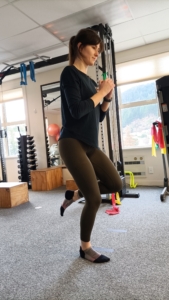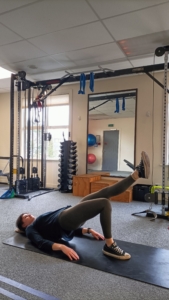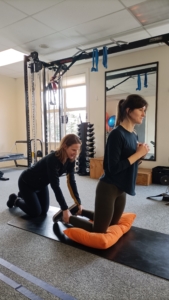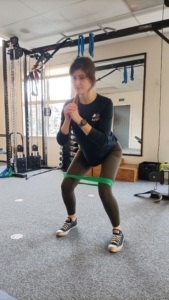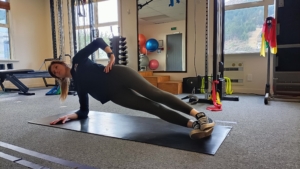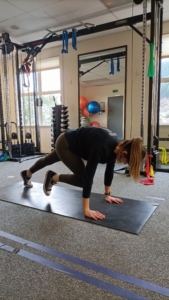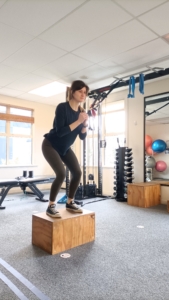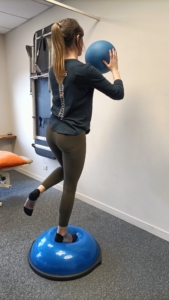Strength and Balance Training for Runners
Running is excellent aerobic exercise, is an amazing outdoor sport, and is accessible to anyone with very little equipment. It’s important to remember that running places large forces and physical
demands on the body regardless of your chosen distance, pace, or terrain. Without proper conditioning of the leg muscles along the biomechanical chain it can be easy to pick up injuries.
Running injuries include bone and soft-tissue injuries caused by sudden events like sprains or strains, or can be caused by repetitive injury and overuse. ACC data shows that there were 153,014 running related injuries reported between 2010 and 2020 in New Zealand. The majority of those affected were aged 10-54, with similar numbers of males to females… basically, running injuries can affect anyone at any time!
Every runner’s regular training routine should include some form of strength and balance training. Adding these types of exercises into your training can improve your overall performance in addition to preventing injury. Remember to choose exercises suitable for your level – if they are too easy then you won’t see improvements, and if they are too hard then you won’t perform well enough and will likely forget about them after a few sessions. This principle applies to both strength and balance exercises.
For strength training you can start with body-weighted exercises and progress to using weights as you become stronger. To build muscle strength you should pick an exercise and weight that allows you to perform somewhere between 8-12 reps well while making any further reps difficult. Complete 2-3 sets of 8-12 reps on 3 or more days each week to see improvement over time. To improve balance, you need to ensure that your exercises are challenging enough to stimulate your nervous system. Balance exercises often involve standing on one leg and keeping your balance
for as long as possible. Create challenging drills by standing on an uneven surface like a Bosu ball and add movement or distraction like throwing and catching a ball at the same time! Aim to complete 5-10 minutes of balance exercises on 2 days each week. If you’re unsure which exercises to choose – have a look at the examples below.
If you are serious about building a personalised training routine and incorporating strength and balance exercises that target your weaker areas, book an appointment with one of our physiotherapists for assessment and guidance.
Single leg squat: Stand near a wall or table for support if you need it. Balance on your affected leg. Keeping the heel on the ground, bend your knee, ensuring the knee travels directly
forwards over your toes. Straighten back up fully, and repeat the movement.
Single leg bridging: Lie on your back. Bend one leg upwards, placing the foot on the floor. Draw your other leg up to the same position, maintaining a hips width between
your legs. Lift one foot slightly off the floor. Using the effort of your remaining foot, lift your hips up into a bridge until you have a straight line from your shoulders to your knees. Lower back down and repeat. Keep your pelvis level throughout this exercise.
Single leg heel raise with weight: Stand up straight holding a weight in each hand. Move your weight onto the leg to be exercised, lifting your other from the floor. Ensure you to not rest your elevated leg on your stance leg. Keeping your gaze directly ahead and your knee straight, rise up onto the ball of your foot. Ensure you keep your core, buttocks and thigh muscles activated to help control this movement. Slowly lower your heel back to the floor and repeat.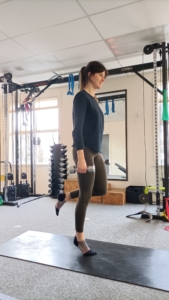
Nordic hamstring curl: This exercise requires a partner. – Start position is kneeling on the floor with the partner behind holding onto your heels to keep the legs in place. Lean forward from the waist slightly for three repetitions, returning to the starting position each time. Do not bend at the waist and keep the trunk and the thighs in line. After the first three repetitions, increase the forward lean a bit more for every movement until you reach an angle from which you are unable to return, then fall forward keeping the trunk rigid and use a push-up to return to the starting position
Resisted crab walks: Place a band around your ankles and gather some tension. Side-step keeping constant tension on the band. Make sure you do not bring your feet too close together and keep your toes and knees pointing forwards.
Side plank with dip: Lie on your side and lift yourself in to a plank on your elbow, with a straight line from your head to your feet. Drop your hips down until they are just off the floor, and then bring them back up.
Mountain climbers: Adopt a plank position insuring your hands are directly beneath your shoulders. Fully flex one hip and hold. Extend the bent leg to the rear and repeat the movement pattern on the opposite side.
Box jumps on/off: Start Position is standing in front of a box or step with your feet shoulder width apart. Perform a short squat in preparation for jumping at the same time swinging your
arms behind you. Rebound out of this position, extending through the hips, knees, and ankles to jump as high as possible. Swing your arms forward and up. Land on the box with your knees bent, absorbing the impact through the legs. Jump off the box landing on the balls of the feet and heels absorbing the impact through the knees and hips.
Plyometric alternating lateral hop: Stand up straight with a line marker on each of your sides. Transfer your weight onto one foot and lift your other off the floor. Using your arms to generate momentum, hop sideways over one line landing lightly on your foot, then immediately hop sideways over the other line landing on your other foot. Continue as instructed.
Single leg stand on BOSU throw/catch against wall (stand on round side): Place a BOSU onto its flat side on the floor in front of a wall. Stand on one leg on the rounded side of the BOSU and gain your balance. Throw the ball against the wall, keeping your balance as you catch it. Repeat this movement, trying to keep the BOSU as steady as possible.


